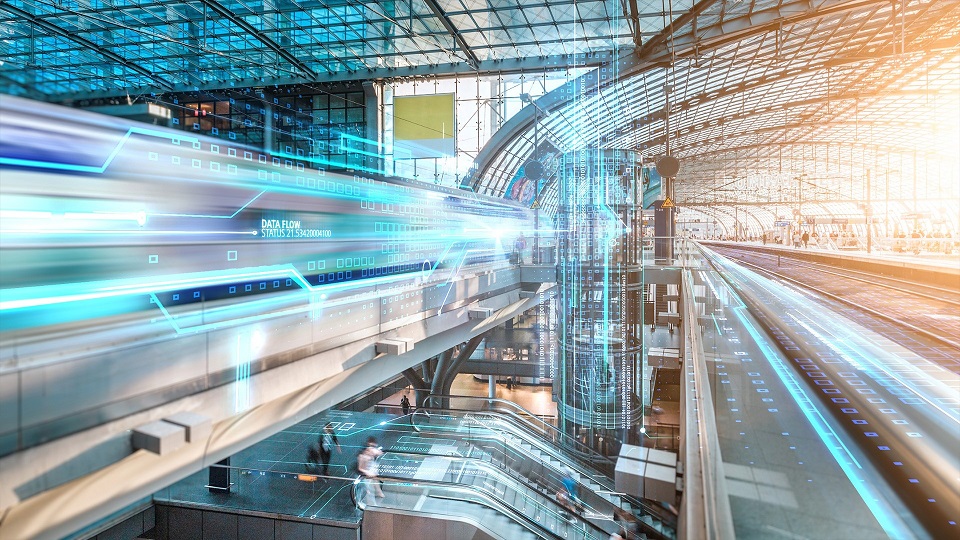The railway industry is on the brink of a revolutionary transformation, driven by advancements in modern connectivity technologies. These innovations promise to enhance efficiency, safety, and passenger experience, while also supporting environmental sustainability. This article delves into the future prospects of rail travel enabled by connectivity, exploring the potential for growth and improvement in the sector.
Autonomous Trains
Self-Driving Technology
One of the most exciting prospects for the future of rail is the development of autonomous trains. Connectivity technologies enable the integration of self-driving capabilities, allowing trains to operate with minimal human intervention. These autonomous systems can improve safety by reducing human error, optimise schedules, and enhance operational efficiency.
Improved Reliability
Autonomous trains can also improve the reliability of rail services. With real-time data and advanced algorithms, these trains can adjust to changing conditions, such as track obstructions or adverse weather, ensuring timely and consistent service. This reliability can attract more passengers to rail travel, reducing congestion on roads and decreasing carbon emissions.
Advanced Passenger Services
Personalised Travel Experiences
Modern connectivity allows for the creation of personalised travel experiences. Passengers can receive tailored information and services based on their preferences and travel history. From customised route suggestions to personalised entertainment options, these services enhance passenger satisfaction and make rail travel more appealing.
Seamless Intermodal Connectivity
The future of rail travel includes seamless integration with other modes of transportation. Connectivity enables the development of intermodal travel solutions, where passengers can easily transition from trains to buses, trams, or even bicycles. This interconnected network makes travel more convenient and reduces the need for private car usage, contributing to environmental sustainability.
Enhanced Safety and Security
Predictive Analytics for Safety
Connectivity-driven predictive analytics will play a crucial role in enhancing rail safety. By continuously analysing data from various sources, rail operators can identify potential safety issues before they become critical. This proactive approach allows for timely maintenance and intervention, significantly reducing the risk of accidents.
Real-Time Security Monitoring
Advanced connectivity will enable real-time security monitoring of trains and stations. High-definition cameras, sensors, and communication networks will work together to detect and respond to security threats promptly. This enhanced security infrastructure will provide passengers with greater peace of mind and make rail travel a safer option.
Sustainable Innovations
Energy-Efficient Operations
The future of rail travel is intrinsically linked to sustainability. Connectivity technologies will enable more energy-efficient operations by optimising train speeds, routes, and energy usage. Innovations such as regenerative braking and smart grid integration will further reduce the carbon footprint of rail travel.
Eco-Friendly Infrastructure
Connectivity will also support the development of eco-friendly rail infrastructure. Smart construction techniques and materials, guided by real-time data, will minimise environmental impact. Additionally, connectivity will facilitate the maintenance of sustainable practices throughout the lifecycle of rail infrastructure, from construction to operation and eventual decommissioning.
Economic Growth and Development
Boosting Local Economies
The expansion and enhancement of rail networks through connectivity will have significant economic benefits. Efficient and reliable rail services can boost local economies by facilitating the movement of goods and people. Improved connectivity can attract businesses and tourism, leading to job creation and economic development in connected regions.
Investment Opportunities
The ongoing advancements in rail connectivity present numerous investment opportunities. Governments and private investors are likely to invest in modernising rail infrastructure and services, recognising the long-term benefits of a robust and efficient rail network. These investments will drive further innovation and growth in the sector.
Future-Proofing Rail Travel
Adapting to Technological Advances
Connectivity ensures that the rail industry can adapt to future technological advances. As new technologies emerge, rail systems can be upgraded and integrated seamlessly, ensuring that rail travel remains at the forefront of innovation. This adaptability is crucial for maintaining the relevance and competitiveness of rail transport in the future.
Meeting Changing Passenger Demands
The expectations and demands of passengers are continually evolving. Modern connectivity provides the flexibility to meet these changing demands by offering new services and improving existing ones. From enhanced onboard experiences to more efficient ticketing systems, connectivity will ensure that rail travel remains an attractive option for future generations.
Conclusion
Modern connectivity is poised to revolutionise the future prospects of rail travel. From autonomous trains and personalised passenger services to enhanced safety, sustainability, and economic growth, the benefits are far-reaching. By embracing these advancements, the railway industry can look forward to a future of increased efficiency, reliability, and passenger satisfaction, solidifying its role as a cornerstone of modern transportation.
#FutureOfRail #RailInnovation #ConnectedTransport #SmartRail #AutonomousTrains #SustainableTravel #RailSafety #PassengerExperience #EconomicGrowth #TransportTechnology
